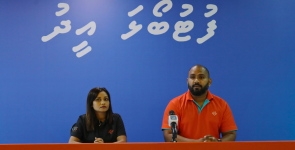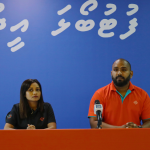The Maldives may be renowned for its pristine beaches and luxurious resorts, but a troubling reality lurks beneath the surface: a severe lack of women in leadership positions. The recent parliamentary elections saw a mere three female MPs elected, highlighting a deep-rooted gender imbalance with far-reaching consequences, not just for equality but for the nation’s economic future. The nation’s cabinet tells a similar story – out of 22 Ministers, a paltry three are female.
Studies have consistently shown that greater female participation in politics and business leadership positively correlates with economic growth. Women legislators tend to prioritize issues like healthcare, education, and social welfare – investments that ultimately boost a nation’s human capital and productivity. Moreover, diverse representation within policymaking bodies helps to counter corruption and fosters more responsible fiscal management.
The Maldives, with an economy heavily reliant on tourism, has a particular interest in promoting gender-inclusive policies. A diverse leadership body sends a positive signal to potential visitors and international investors, projecting an image of an open, modern society. Female-friendly workplaces, supported by appropriate legislation that only female policymakers may truly understand and champion, also play a key role in attracting and retaining a talented workforce.
The underrepresentation of women at the top tables, therefore, represents a serious missed opportunity for the Maldives. It hampers the nation’s ability to unlock its full economic potential and undermines its credibility as a progressive, tourist-friendly destination.
So, what’s to be done? The Maldives is no stranger to efforts aimed at achieving greater female participation. Quotas in local councils have yielded encouraging results; perhaps it’s time to consider a similar approach for the parliament. However, while quotas can help open doors, changing mindsets is equally important and more challenging.
Civil society organizations, particularly those headed by women, have a critical role to play in raising awareness of gender imbalances and championing women’s inclusion in politics. Schools must also play their part by actively encouraging girls’ leadership potential and dismantling stereotypes about public roles.
It’s time the policymakers in Malé realized that neglecting the voices and perspectives of half their population is a self-inflicted wound. It undermines not just women’s empowerment but also the overall well-being of the nation. True progress towards becoming a modern, equitable democracy cannot happen while women are sidelined.
While the shimmering islands may attract those seeking paradise, let it not be said that it’s a paradise enjoyed only by half. The Maldives, if it is to live up to its image as an idyllic haven, must work with urgency to ensure its halls of power truly reflect the vibrant and diverse tapestry of its people.



















